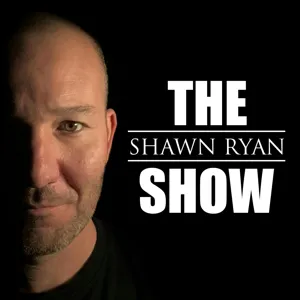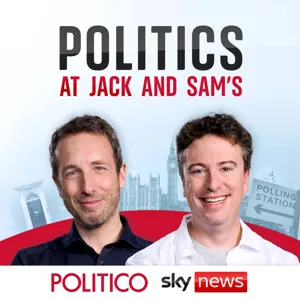Podcast Summary
COP 28: Balancing Energy Production and Climate Change: Despite the urgency to address climate change, controversy arose at COP 28 as the president, an oil executive, questioned the need to phase out fossil fuels, underscoring the challenge of balancing energy production and climate action.
As the world grapples with the impending reality of what could be the hottest year on Earth in over 125000 years, caused primarily by climate change and the burning of fossil fuels, tens of thousands of people from various sectors have come together at the United Nations climate conference (COP 28) in Dubai to discuss climate justice and collectively address this issue. However, the conference began with controversy when the COP 28 president, an oil executive named Sultan Al Jabber, questioned the science behind phasing out fossil fuels to meet climate change goals. Despite his later attempt to retract the statement, this set the tone for a contentious negotiation period. This highlights the ongoing challenge of balancing the need for energy production with the urgent need to combat climate change.
Intense negotiations at COP28 climate conference: Countries negotiate to find consensus on climate change, with 200 nations, NGOs, institutions, companies, and 250 fossil fuel lobbyists present, uncertain outcome but global importance emphasized
Learning from the ongoing COP28 climate conference in Dubai is the intense negotiations among nearly 200 countries to find consensus on addressing the complex issue of climate change. The conference, which is scheduled to end on Tuesday but could last longer, features dense policy conversations and hundreds of pavilions representing various countries, NGOs, institutions, and companies. Notably, there are nearly 250 fossil fuel lobbyists present, according to a coalition called Kick Big Polluters out, indicating the industry's concern over potential agreements that could negatively impact their business. OPEC, an oil cartel, also has a presence and caused a stir earlier in the conference. The scene is a mix of high-level discussions and various displays, with businesses, including fossil fuel companies, showcasing their initiatives. The conference's outcome remains uncertain, but the presence of numerous stakeholders underscores the global importance of finding a solution to climate change.
COP28: OPEC Members Urged Not to Sign on to Fossil Fuel Phase-Out Deals: Climate conference aims to limit global warming to 1.5 degrees Celsius, but debates over phasing out fossil fuels intensify as world warms, with potential consequences including food system collapse and coral reef loss.
The ongoing COP28 climate conference is a high-stakes meeting for all involved, as OPEC members have received a leaked letter urging them not to sign on to any deal mentioning a phase-out of fossil fuels. This issue has become a major concern for climate activists, particularly those from countries most affected by climate change. The conference aims to produce a report card, called the global stocktake, to assess the world's progress in limiting global warming to 1.5 degrees Celsius (2.7 degrees Fahrenheit). With the world already having warmed by about 1.2 degrees Celsius compared to pre-industrial times, the debates surrounding phasing out fossil fuels are intense, as the consequences of exceeding the 1.5-degree threshold could lead to the collapse of food systems and the loss of most coral reefs. The world is already experiencing the effects of climate change, including hurricanes, wildfires, heat waves, and flood events, which would worsen if the temperature continues to rise. The aim of the conference is to avoid these worst-case scenarios, but it remains to be seen if the necessary steps are being taken to accomplish that goal.
COP28: Fossil Fuel Phase-Out Opposed by Certain Countries: Opposition to a fossil fuel phase-out persists at COP28, with countries like Saudi Arabia and the US advocating for emissions reduction instead. The US, with significant oil and gas development plans, pushes for carbon capture technology. Negotiations continue, but the phase-out language has been removed from the draft agreement.
Learning from the ongoing COP28 negotiations is the strong opposition from certain countries, including Saudi Arabia and the US, to any mention of a phase-out of fossil fuels in the final text. Instead, these countries argue for a focus on limiting emissions, rather than targeting the source of pollution. This stance is not only held by oil-rich nations but also by representatives like John Curtis from the US. The US, which has more oil and gas development plans than any other country, advocates for the use of technology like carbon capture to address emissions. Negotiations are ongoing, but as of Monday evening, the language on a fossil fuel phase-out has been removed from the draft agreement. Even if negotiators manage to reinstate this language, there's a need to ensure a fair and equitable transition that doesn't harm developing countries dealing with energy insecurity. For instance, Manish Bhapna, the president and CEO of the Natural Resources Defense Council, emphasizes the importance of fossil fuel phase-out language but acknowledges the varying stages of development among nations.
COP28: Discussions on Fossil Fuel Phase-Out and Climate Change Funding: Large polluters debate fossil fuel reduction, while small countries and climate victims seek funding for adaptation and damages. COP28's loss and damage fund falls short.
The discussion at COP28 revolves around the need for large historical polluters like the US to take swift action in phasing out fossil fuels, while smaller countries may have a longer transition period. However, this issue is complicated by the fact that countries most affected by climate change, often those with the least historical contribution, are seeking funding for adaptation and compensation for losses and damages. The UAE, the host of COP28, established a loss and damage fund at the beginning of the talks, but it lacks the necessary resources. The coming hours and days will determine if any significant agreement on these matters will be reached. Adaptation and loss and damage are crucial aspects of the conversation, but they have not received the attention they deserve. Stay tuned for updates on NPR news.
Production of the Podcast: Collaborative efforts result in high-quality podcast production, with affordable prices from Saatva and Mint Mobile sponsors
This episode of the podcast was produced by Cooper Katz McKim, with engineering by Sina Lofredo and Josh Newell, and fact-checked by Sierra Juarez. Cake in Canon edited the show, and NPR handled its production indicators. The episode was sponsored by Saatva, offering luxury mattresses at half the price of expensive brands due to being sold online, and Mint Mobile, providing unlimited talk, text, and data plans for $15 a month with a 3-month plan purchase. The podcast message comes from NPR sponsors. In summary, the episode was a product of collaborative efforts, and listeners can enjoy high-quality products and services from Saatva and Mint Mobile at affordable prices.






